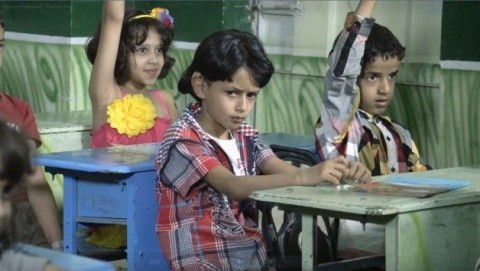
Although the Government of Yemen is a signatory to the International Convention on the Rights of Persons with Disabilities, those with hearing and speech disabilities still face exclusion and limited access to public services and government resources available to other members of society, including public education.
USAID and the Yemen-based Ocsana Institution are working together to advocate for Yemenis with disabilities. In August 2013, the Institution produced a four-minute video highlighting the challenges people with hearing and speaking disabilities face on a daily basis. The film, with English and Arabic subtitles, presents examples of daily challenges faced by community members when applying for jobs, talking to doctors or learning in school. The USAID-supported video ends by advocating for disability awareness, access to services, and increased use of sign language by government offices.
Mariam Shogaa Aldeen, head of the Ocsana Institution, noted that in 2004, Yemen's Central Bureau of Statistics estimated that 7 percent of the country’s population of 25 million suffer from hearing disabilities, compared to the average rate of 5 percent worldwide. Those with hearing and speaking disabilities rely mainly on charities and local organizations for basic services, which are not adequately provided by the Yemen Government. Only one school, located in the capital of Sana’a, has been created for students with hearing disabilities. Largely dependent on charities, the school lacks well-trained teachers and a curriculum tailored to student needs.
The public awareness video is part of a wider media awareness campaign and series of workshops organized by the Ocsana Institution, in cooperation with other local civil society groups, to advocate for equal rights, better government, and societal recognition for persons with hearing disabilities throughout Yemen. The video has been broadcast on Yemen’s state TV, will be periodically broadcast on other television channels, and has been posted on various social media outlets, including YouTube.
“After the video was launched, the Ocsana Institute received many calls from people who had been unaware of the challenges people with disabilities endured on a daily basis in Yemen,” says Aldeen.
Along with the video, the organization is holding workshops where participants discuss the challenges they encounter in their communities, including equal access to quality education and employment opportunities.
Despite, or perhaps because of his disability and challenges communicating, Marwan Abdulrahman, one of the workshop participants, started drawing when he was 3 years old. Referring to the body of work he has created over the years, he wishes that the “3,000 pieces of paintings could be shown in an open exhibition to people to promote my work to prove to Yemen’s society that persons with hearing disabilities are talented and full of potential, just like anyone else.”
But Yemenis can also express their ideas through the National Dialogue that the country began to allow people to openly discuss the future of their nation. During the National Dialogue, the Human Rights and Freedom Working Group advocates for persons with special needs. Participants in the Ocsana workshops can submit their proposed solutions for better access to services, enhanced rights, and equal opportunity for Yemen’s hearing and speech disabled community.
Production of the public awareness video was supported through USAID’s Responsive Governance Project, which aims to strengthen civil society organizations and increase citizen participation during Yemen’s political transition. The project, which began in 2010 and runs through 2014, also helps individual ministries to better respond to public needs during and after the transition period and the National Dialogue process.







Comment
Make a general inquiry or suggest an improvement.